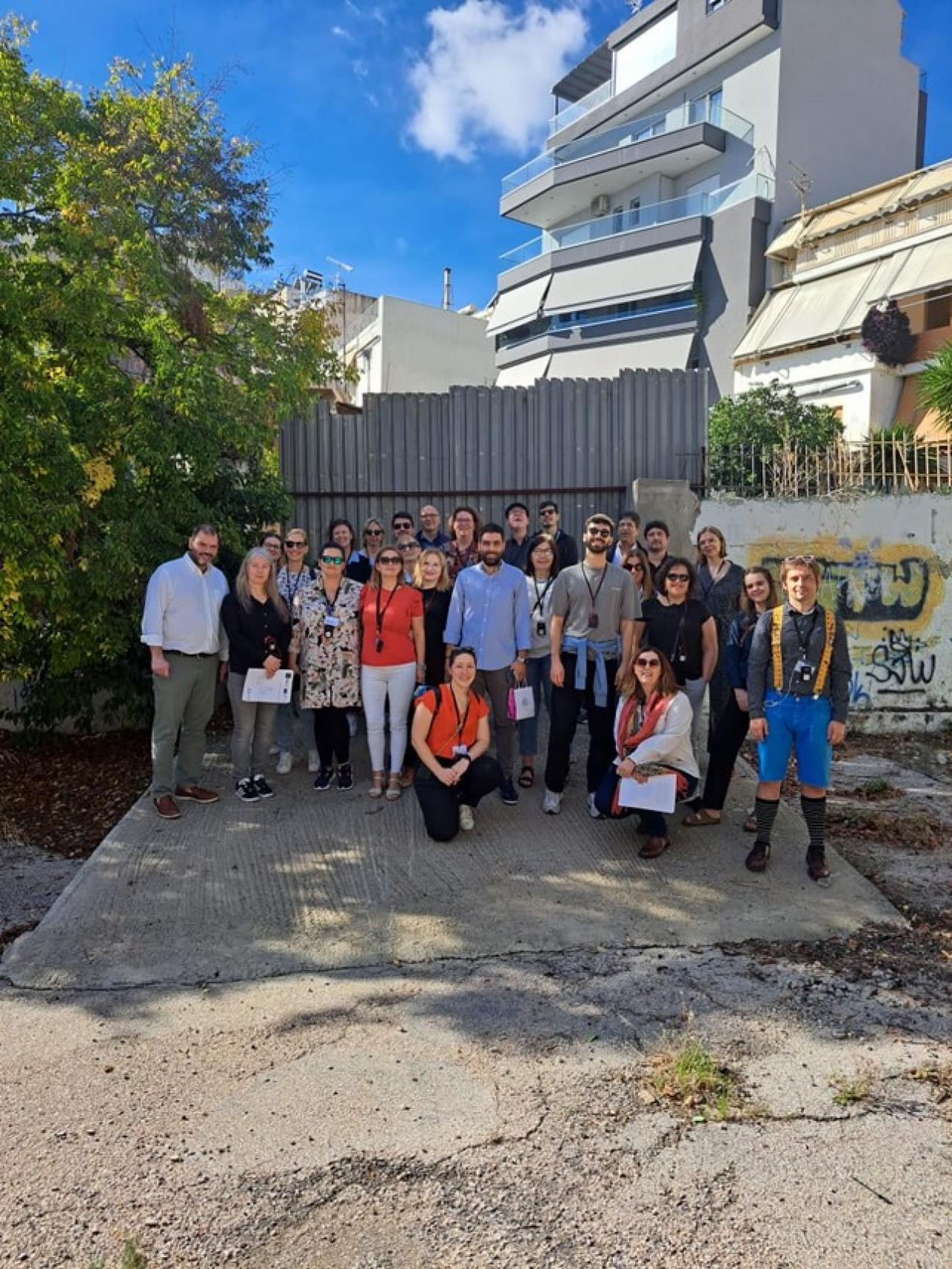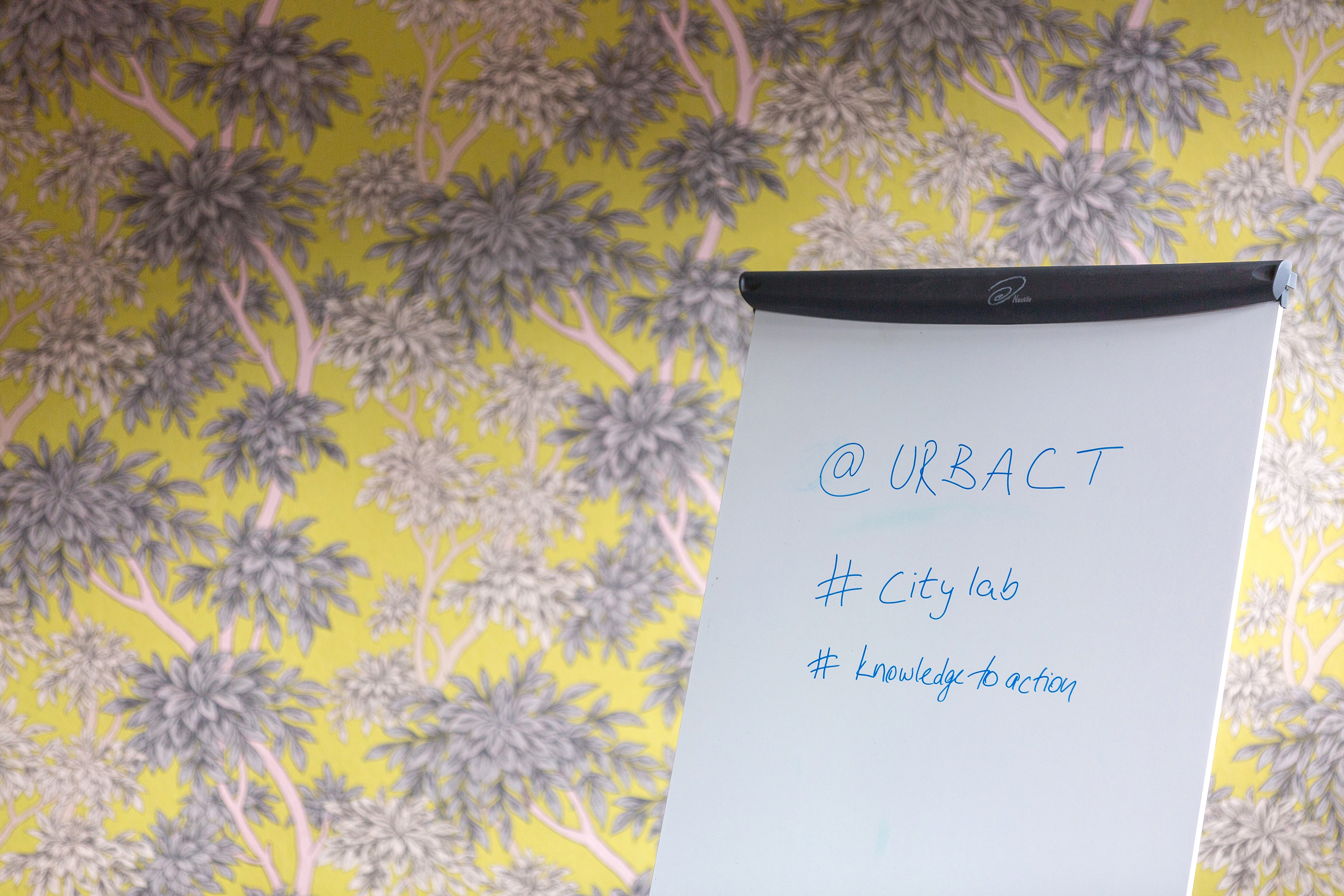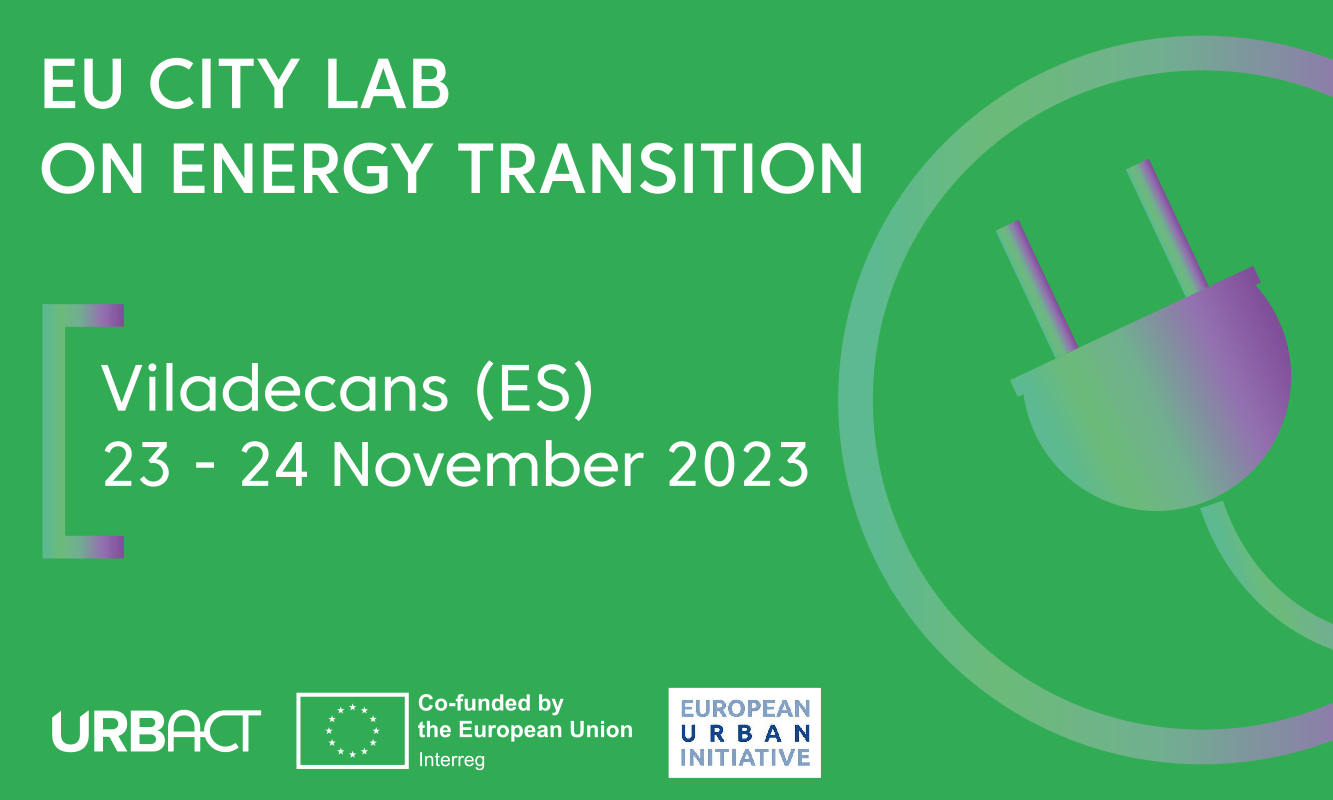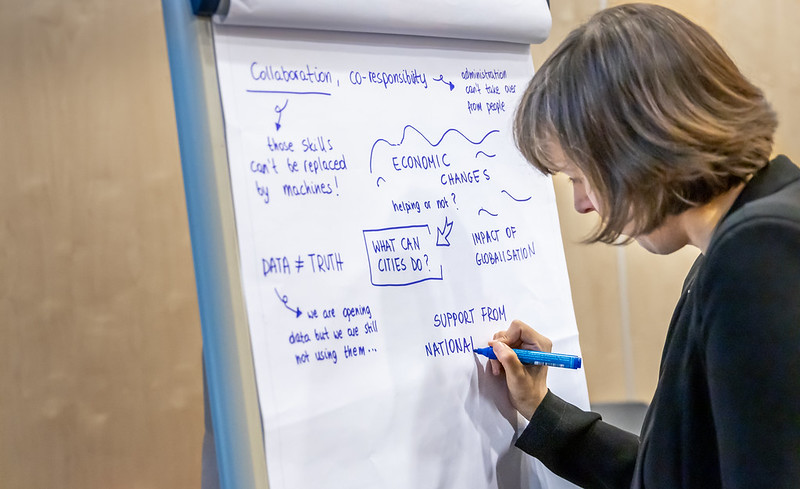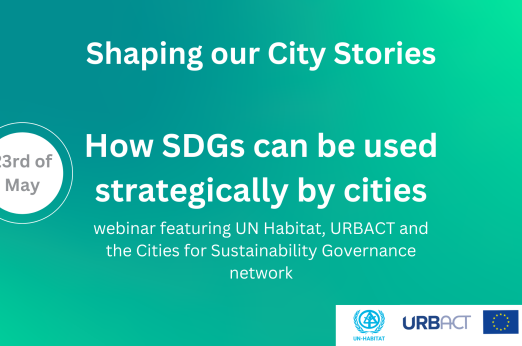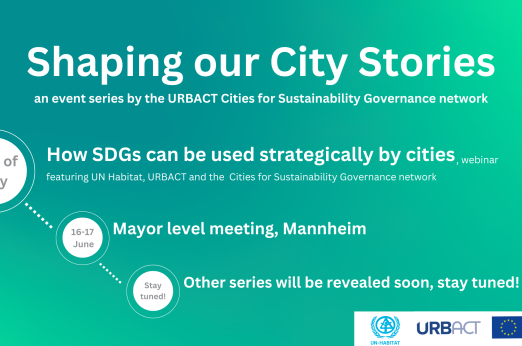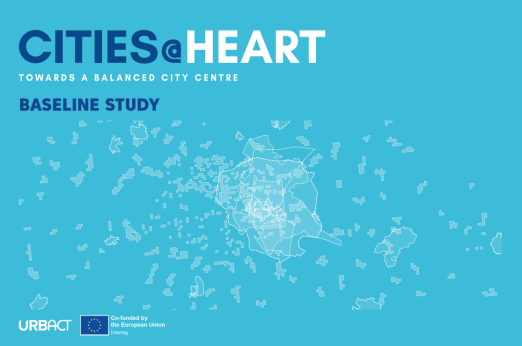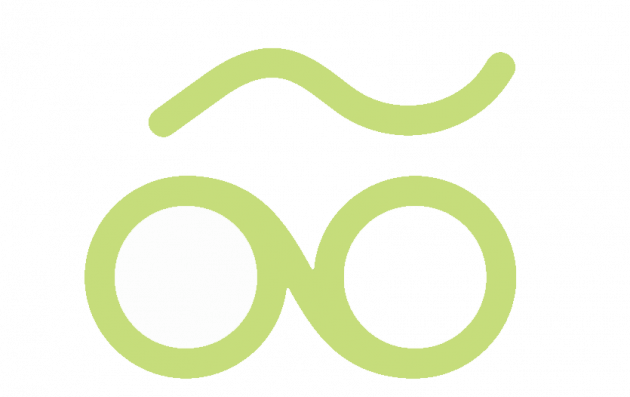.
The linear economic model – why can’t things just stay the same
The working group kicked off by reflecting on some of the inefficiencies and impacts of the current take, make, waste system of production and consumption.
A picture of dying Lough Neagh - a putrid green, provided a stark image of what happens when narrow economic interests take precedence over the wider social, economic and environmental needs of society.
Lough Neagh, the largest lake in the UK and on the island of Ireland, provides 40% of the drinking water of Northern Ireland. It provides vital tourism, leisure and fishing related ecosystem services to the people there and is arguably the region’s most valuable natural asset.
Now, it is dying.
Lough Neagh, Northern Ireland
The lake has become a nutrient dense toxic soup as a result of increasing run-off from agricultural land and human sewage systems. It is no longer capable of sustaining the rich and vibrant ecosystems to which it was once home. It is choking and for anyone brave enough to venture nearby the stench is unbearable[1].
But this is not an isolated case. Yet, as we strive further towards agricultural intensification and increasing food production, more and more people go hungry each year[2], while over 30%[3] of food is wasted along the value chain.
This is both inefficient and ineffective. But it is not a characteristic unique to the food system. This is a characteristic of the linear system of production and consumption as a whole.
A system that is well and truly broken.
The linear economic model relies on high volume inputs of virgin resources and cheap labour to feed its endless appetite for economic growth and profit, all the while resulting in increasing biodiversity loss, environmental pollution and growing social inequity. Meanwhile our thirst for consumption does not cease and global resource extraction is predicted to rise by 60% by 2060[4].
The system is broken.
Can Circular Economy be the change we need?
The circular model of production and consumption provides us with some hope of emerging from this current mess. A regenerative and restorative economic model, it does not focus on economic growth alone but also strives to benefit both the environment and society. The circular economy model is based on the three key principles of (i) designing out waste and pollution, (ii) keeping products and materials in use and (iii) regenerating natural systems.
Can Cities Lead the Change towards a circular economy?
While cities are drivers of consumption and production they can also be agents of systemic change. 75% of Europe’s population live in cities which are renowned for their potential to be epicentres of innovation. Cities of course are also business and commercial hubs. 80% of cities and regions surveyed by the OECD identified the business sector as a key player in contributing to the development and implementation of circular economy initiatives[5]. Businesses recognise that climate change is the biggest threat to the future sustainability[6] of their business and many of them are making great strides towards more circular business models.
Several examples of these models were shared during the workshop with can be seen in the visual here below:
Figure 1: Five business models of circularity with examples
Industrial symbiosis was also discussed and a case study example was shared from the public, private and intermunicipal collaboration which is Green Hub Denmark, encompassing industrial areas in Northern Denmark with the Port of Aalborg, a focal point. This collaboration between six municipalities, two universities, three energy companies, four business associations, one port authority (Aalborg), one housing association, one regional government organisation, a regional EU office and Invest in Aalborg, is a great example of what can be achieved through strategic stakeholder collaboration at a regional scale.
Green Hub Denmark acts as a facilitator by enabling development, validation, testing & demonstration of green business models, solutions & technologies in real life testing environments. The typical value of industrial symbiosis to SMEs operating in this area ranges between €4,000 - €6,500 per year. You can learn more about Green Hub Denmark here.
Going a step further, examples of urban industrial symbiosis, where material exchanges are extended to include a nearby city, were also provided. The Amazon data centre in Dublin provides waste heat to a district heating network servicing South Dublin County Council buildings as well as to a university & apartment complex. This covers 100% of their heat demand and results in 1,500 tonnes of Co2 savings annually. The system is managed by a not for profit heat utility company fully owned by South Dublin County Council.
Before diving deeper into further case studies participants were asked to reflect on the barriers towards progressing to a circular economy within their own cities. Participants included private and academic representatives as well as public sector participants. They cited barriers such as a lack of effective communication and awareness raising, regulatory barriers, lack of a circular economy culture and lack of a strategic vision.
Having reflected on the opening, exploratory and closing stages of the idea generation process, partners were invited to brainstorm in small groups what actions their municipalities could take to become a champion of change and lead the shift to circular. A wide range of ideas emerged from showcasing circular businesses so that others might be inspired to developing circular economy hubs.
Group work © Medienproduktion der Stadt Solingen
The workshop sought to provide additional inspiration by showcasing further case studies including the development of a reuse shop in the city of Opole, the development of a circular economy guide to support SME’s to adopt circular practices in Ciudad Real, the development of a cross sectoral circular economy hub and innovation space in Mechelen, known as the Impact Factory and the use of circular economy hubs as new model for community building in the city of Oslo, following on the model of Vollebekk Factory.
How to Involve Stakeholders?
Since the circular economy involves system change it will not emerge on its own. Instead it will require collaborative efforts across the value chain, involving individuals, the private sector, different levels of government and civil society.
Ensuring thus the active involvement of stakeholders is an essential part of the process. In fact knowledge and awareness of the local circular ecosystem of actors and stakeholders is a prerequisite for effective action design.
There are two key strands to consider in preparing the ground for stakeholder involvement. These are (a) knowledge and awareness of circular economy actors and their needs and (b) knowledge of who can support the transition or influence change and how to mobilise them.
Figure 2: Ecosystem awareness: a prerequisite for effective action design
This baseline knowledge will help to inform effective action design. A city’s actions should ultimately reflect the identified needs and challenges of various city stakeholders when it comes to the circular economy. The working group reflected on a city circular economy journey map put forward by the ad hoc expert which showcased a five stage journey, each stage with their own characteristics and related potential city actions.
Figure 3: City Circular Economy Journey Map
Tools to support designing solutions:
The workshop concluded with further group work. Participants mapped their initial brainstormed ideas on an attractiveness map which mapped ideas in a grid categorising them based on impact potential and the degree to which they would be challenging to implement.
Each group chose one idea to take forward and further develop using a designing solutions brainstorming board (based on the test card developed Strategyzer) which served to flesh out details of the action that could later be refined in an action table.
The workshop finished with a call to action reminding participants of their potential to act as changemakers and asking them to reflect on this, on what role they can play in leading the shift to circular, both in their own organisation and within their city.
Key Takeaways
The linear economic system is well and truly broken and the impacts of this are becoming painfully and shockingly evident on a wide scale. A systemic shift towards circularity provides some hope. Cities can play an important role in promoting, facilitating and enabling this, but effective collaboration with their broad ecosystem of stakeholders is vital. Knowledge and awareness of this ecosystem is an important first step in effective action and solution design. Co-creation tools can help this often complex co-design process. Support from an experienced facilitator is also invaluable. Finally, we must never forget that each of us has a role to play in pushing forward this change.
What will your role be?
Keywords: #circular economy #innovation ecosystem #collaboration #integrated action planning #co-design tools #circular hub #industrial symbiosis #circular business models
[1] Natural World Fund (2023) Lough Neagh being poisoned by toxic algae Lough Neagh being poisoned by toxic algae - Natural World Fund
[2] FAO, IFAD, UNICEF, WFP and WHO. 2023. The State of Food Security and Nutrition in the World 2023. Urbanization, agrifood systems transformation and healthy diets across the rural–urban continuum. Rome, FAO. https://doi.org/10.4060/cc3017en
[3] FAO (2011) Global Food Losses and Food Waste, mb060e00.pdf (fao.org)
[4] United Nations Environment Programme (2024): Global Resources Outlook 2024: Bend the Trend – Pathways to a liveable planet as resource use spikes. International Resource Panel. Nairobi. https://wedocs.unep.org/20.500.11822/44901
[5] OECD (2020), The Circular Economy in Cities and Regions: Synthesis Report, OECD Urban Studies, OECD Publishing, Paris, https://doi.org/10.1787/10ac6ae4-en.
[6] World Economic Forum (2024) Global Risks Report 2024, WEF_The_Global_Risks_Report_2024.pdf (weforum.org)

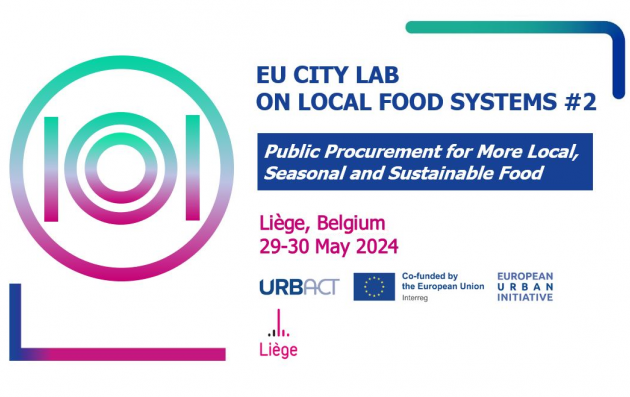
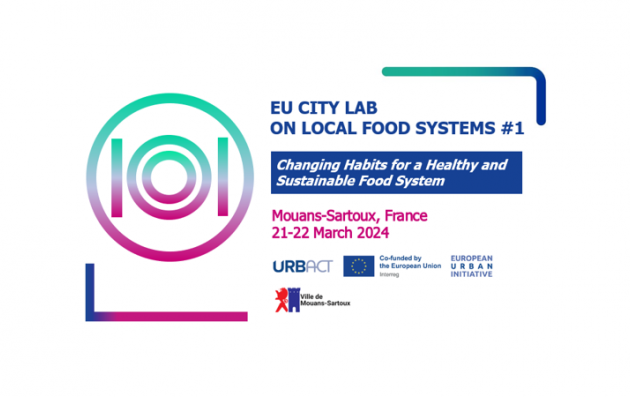
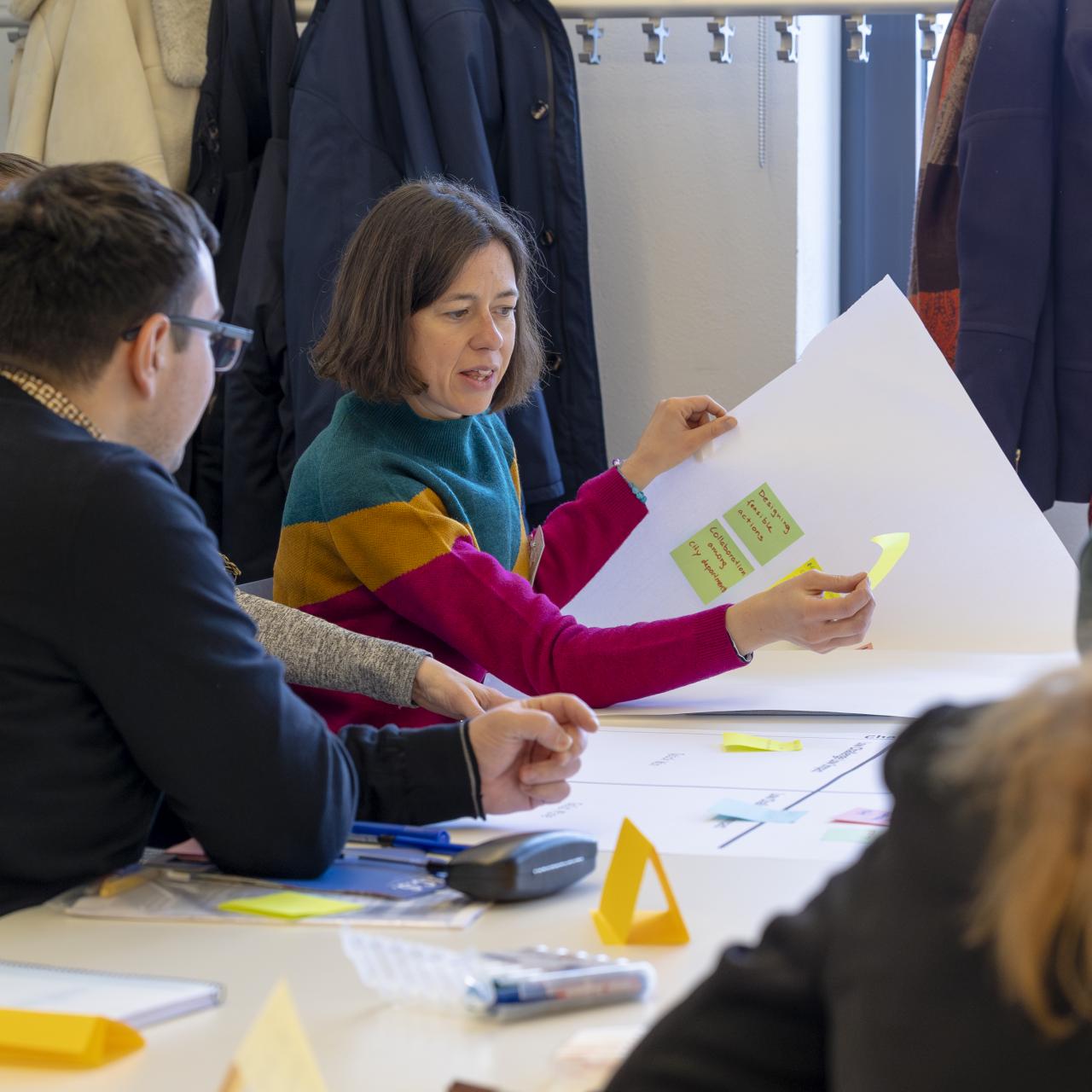
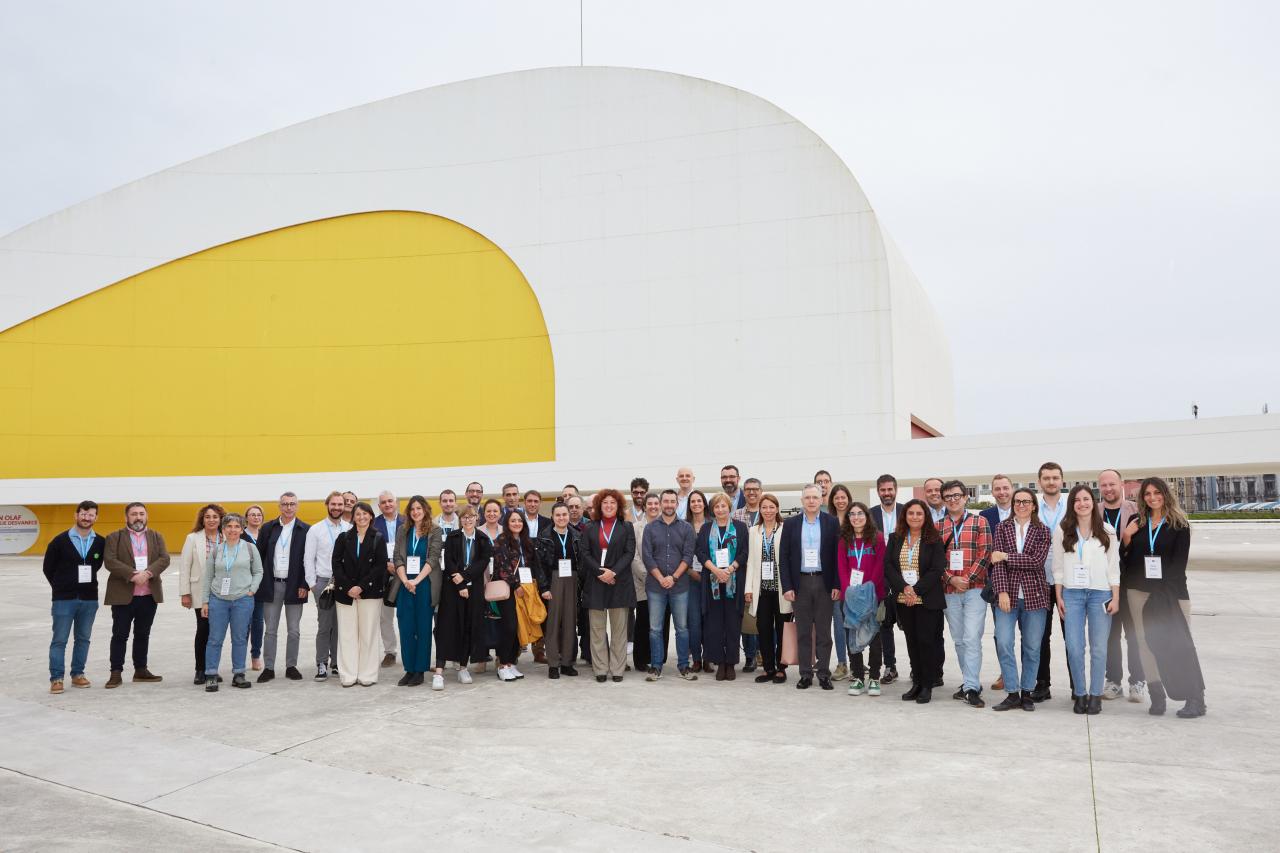
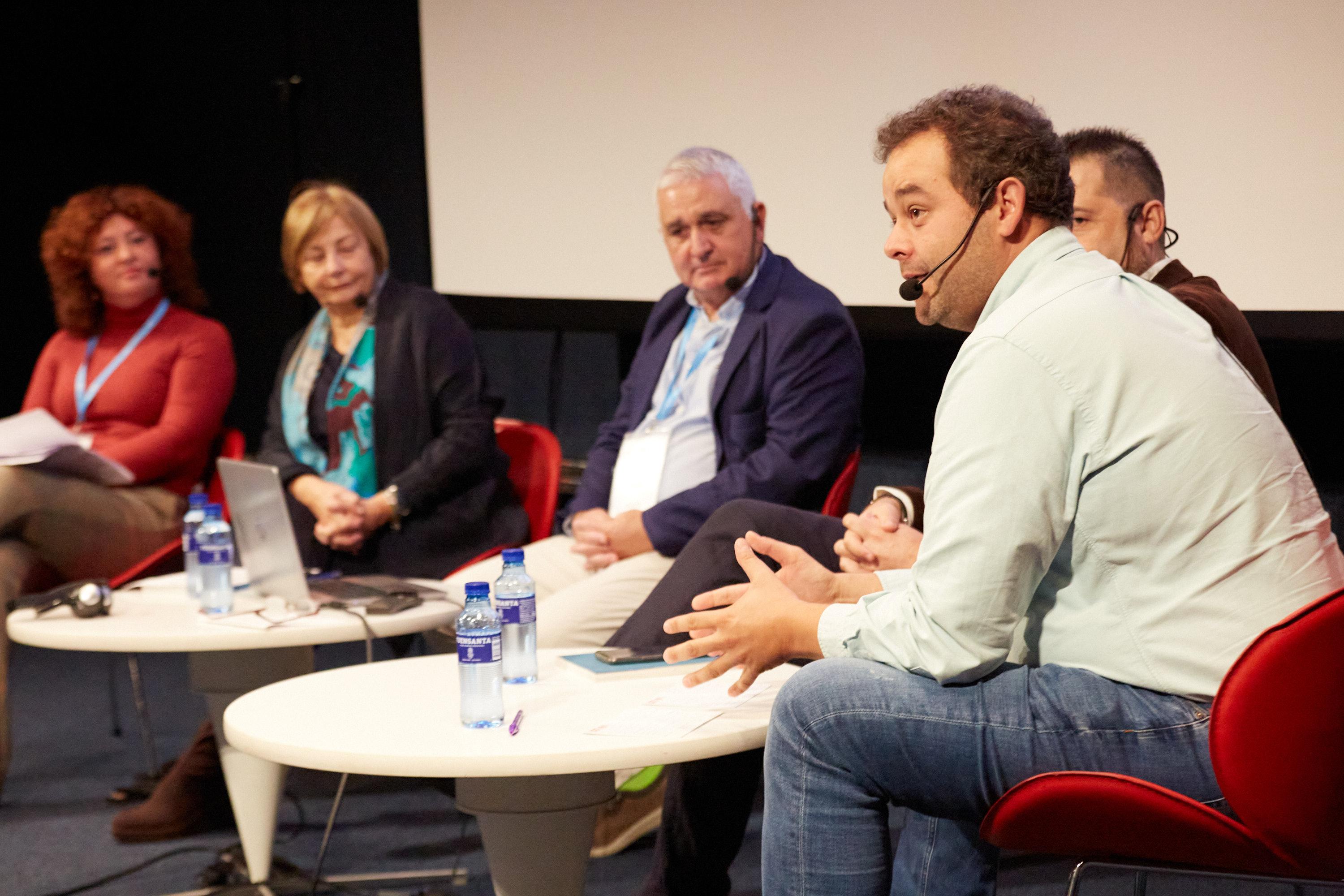
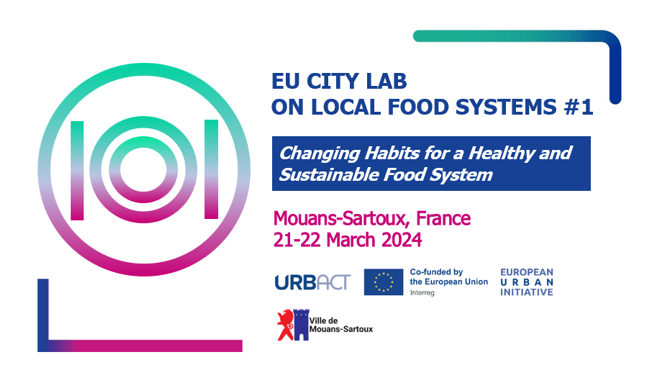
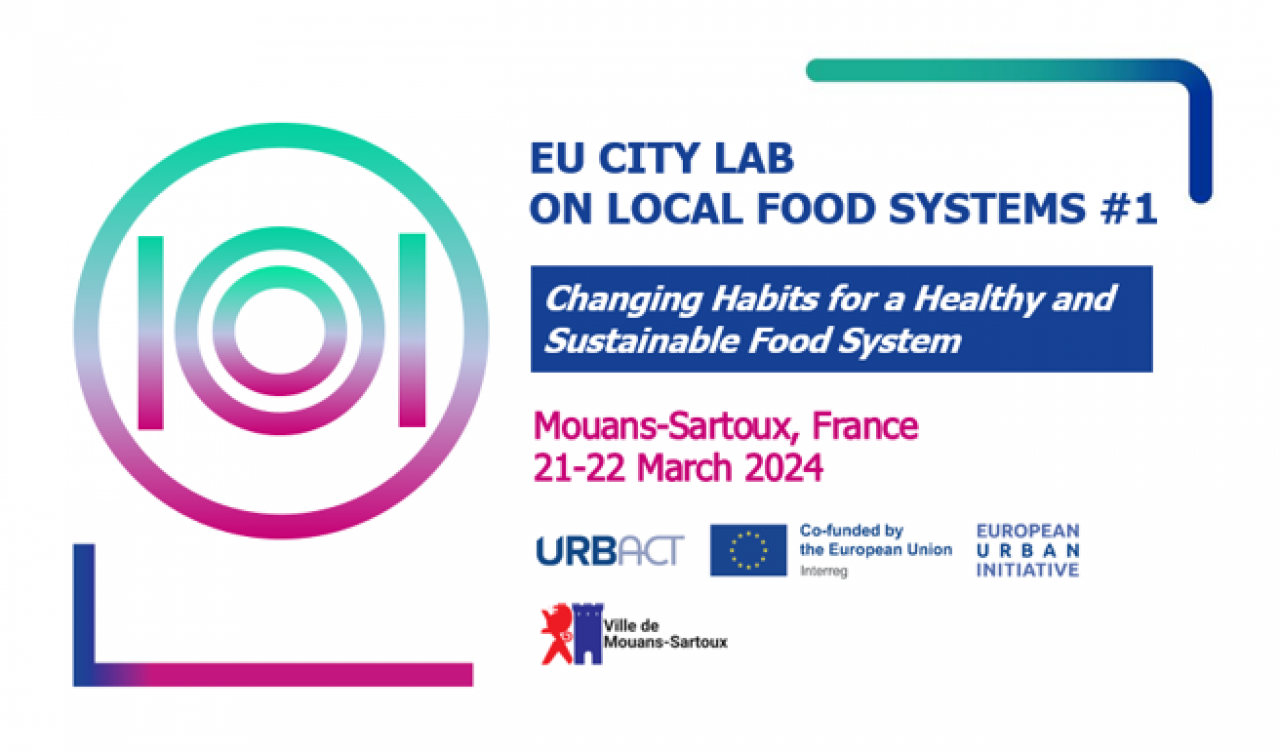
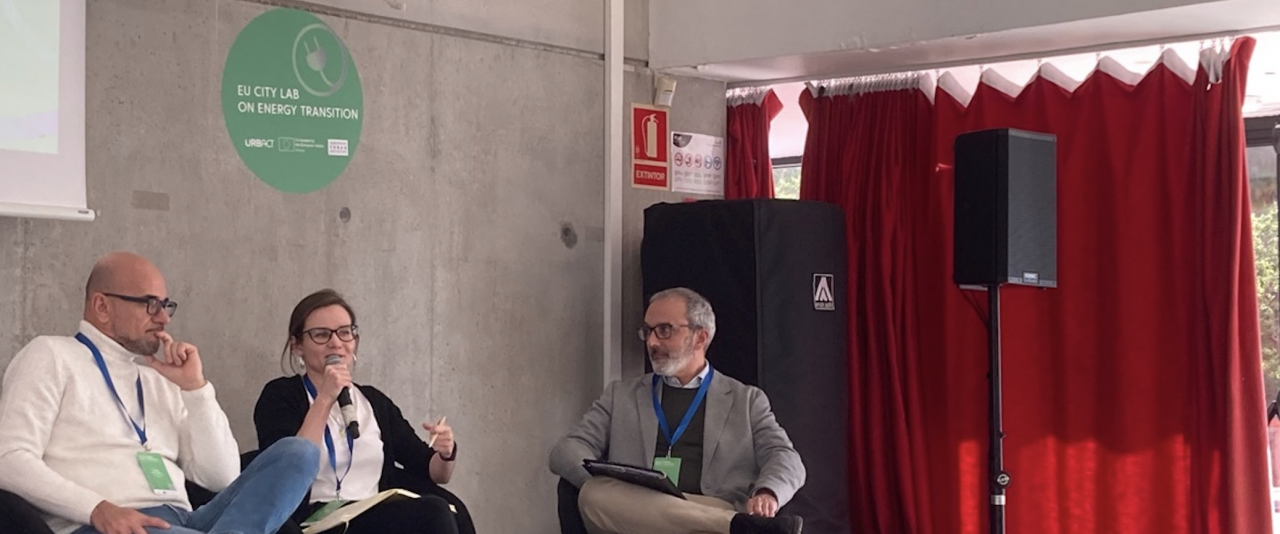
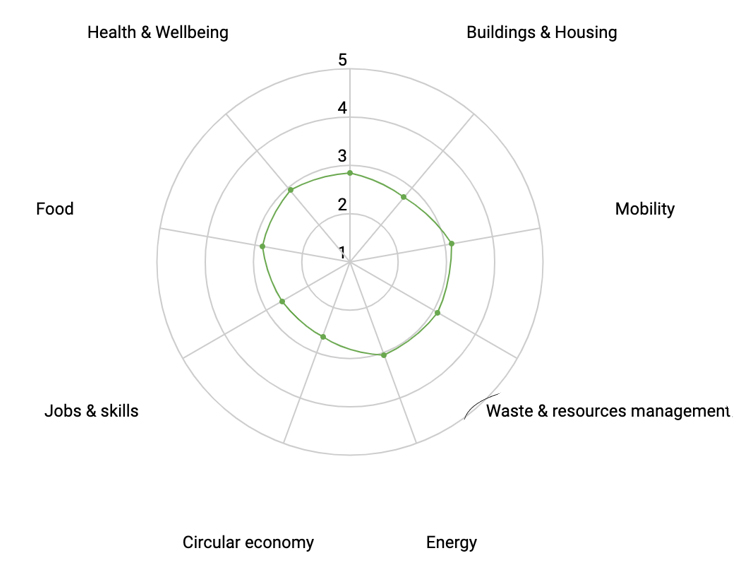
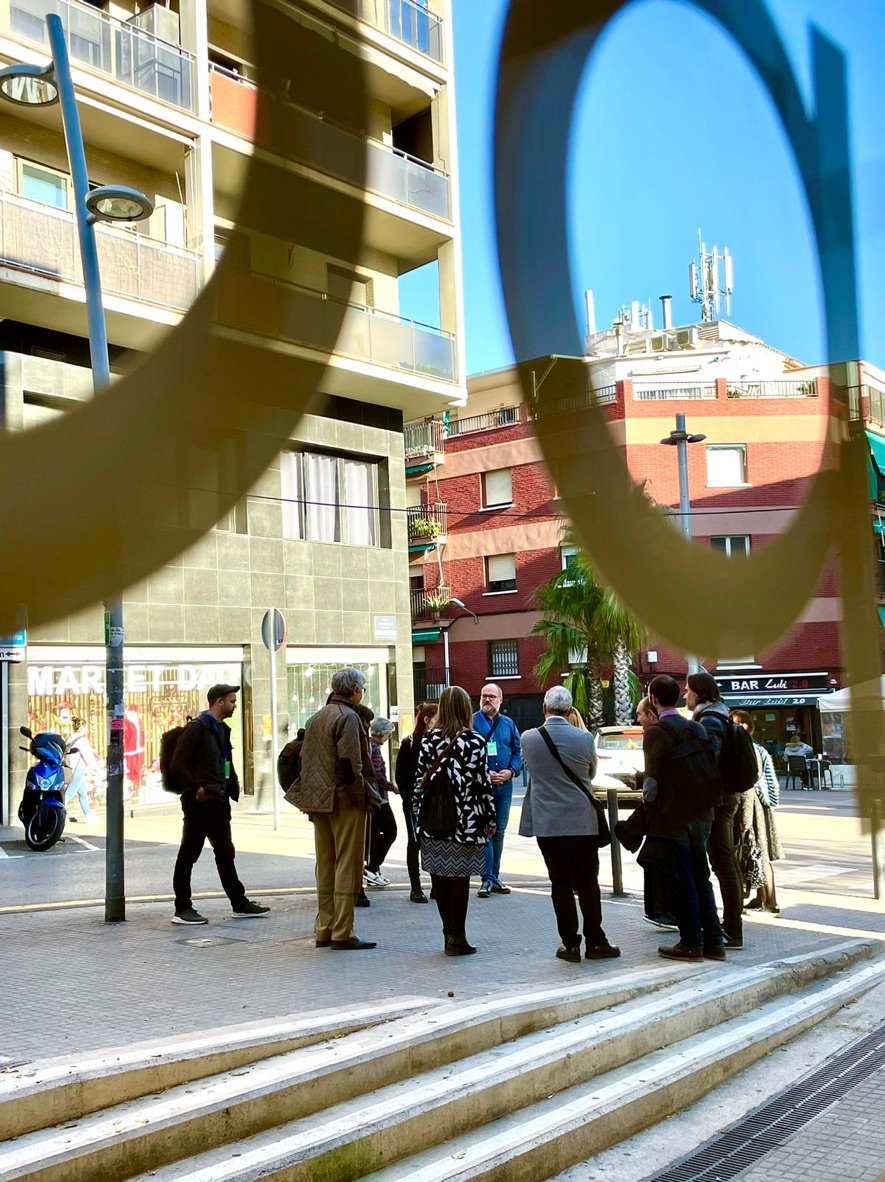 Between 23 and 24 November 2023, 61 people – from city representatives to Managing Authorities – took part in the first EU City Lab in Viladecans (ES). The intense two-day event enabled participants to discover local practices in the field of energy transition, the challenges to set up energy communities, and how a multi-level governance approach can help shape more energy-efficient cities. It was also an opportunity to learn more about the experience of the host city, while making connections to a green just transition.
Between 23 and 24 November 2023, 61 people – from city representatives to Managing Authorities – took part in the first EU City Lab in Viladecans (ES). The intense two-day event enabled participants to discover local practices in the field of energy transition, the challenges to set up energy communities, and how a multi-level governance approach can help shape more energy-efficient cities. It was also an opportunity to learn more about the experience of the host city, while making connections to a green just transition.